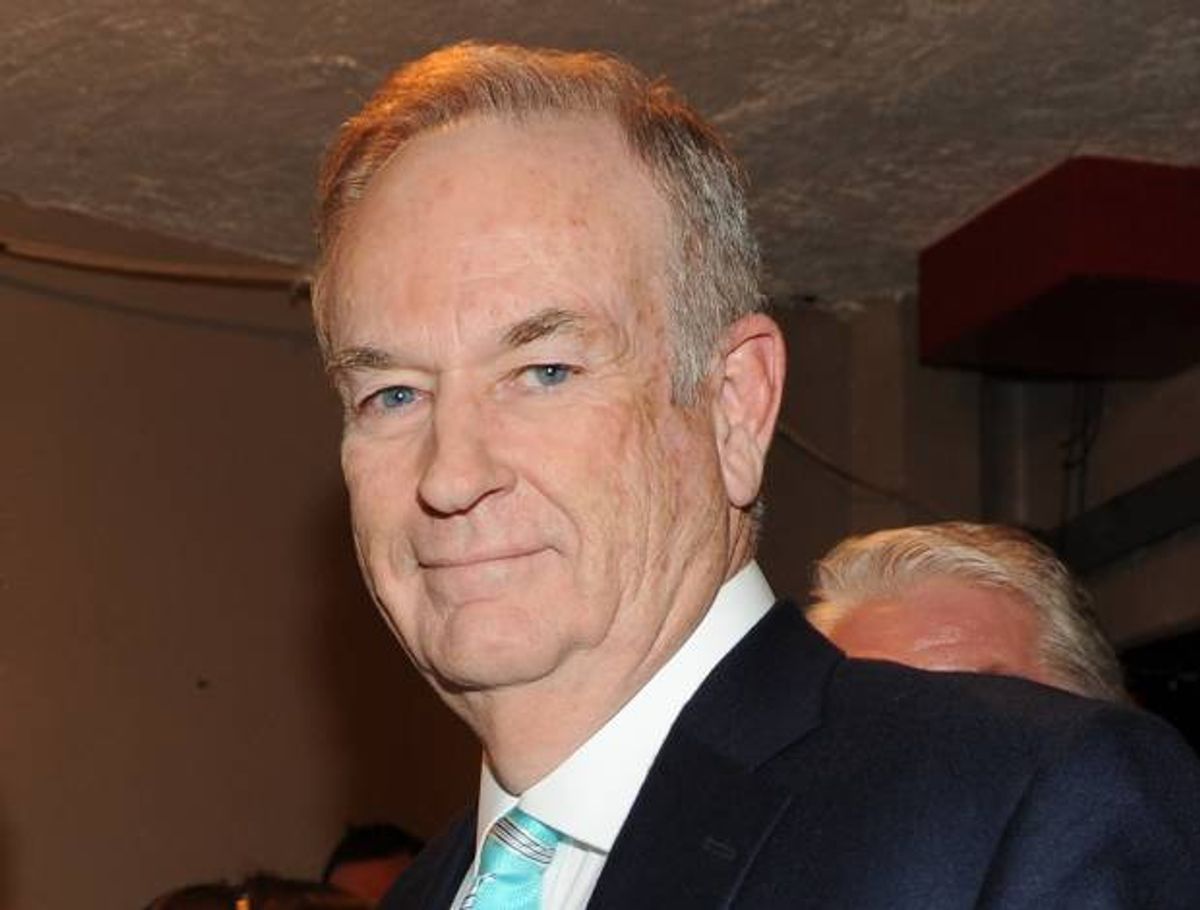NBC News anchor Brian Williams is no longer the only prominent anchor who faces serious credibility questions for misleading the public about his experiences in war zones. In an extensive new investigation, Mother Jones' David Corn and Daniel Schulman detail how for decades, Fox News host Bill O'Reilly has told gripping accounts of his own war reporting that don't mesh with the facts.
O'Reilly's tall tales concern his experiences as a CBS News reporter covering the 1982 Falklands War between Great Britain and Argentina, as well as his dispatches from El Salvador's civil war. The conservative commentator has cited his supposed wartime experiences numerous times as evidence of his journalistic gravitas, as Corn and Schulman document. In his 2001 book "The No Spin Zone," O'Reilly wrote, "You know that I am not easily shocked. I've reported on the ground in active war zones from El Salvador to the Falklands." Three years later, he penned a column in which he asserted, "Having survived a combat situation in Argentina during the Falklands war, I know that life-and-death decisions are made in a flash." O'Reilly also related a tale of his harrowing Argentine experience following the 2013 Boston Marathon bombing, saying on air:
I was in a situation one time, in a war zone in Argentina, in the Falklands, where my photographer got run down and then hit his head and was bleeding from the ear on the concrete. And the army was chasing us. I had to make a decision. And I dragged him off, you know, but at the same time, I'm looking around and trying to do my job, but I figure I had to get this guy out of there because that was more important.
But Corn and Schulman find crucial inconsistencies between O'Reilly's stories and the factual record (emphasis added):
Yet his own account of his time in Argentina in his 2001 book, The No Spin Zone, contains no references to O'Reilly experiencing or covering any combat during the Falklands war. In the book, which in part chronicles his troubled stint as a CBS News reporter, O'Reilly reports that he arrived in Buenos Aires soon before the Argentine junta surrendered to the British, ending the 10-week war over control of two territories far off the coast of Argentina. There is nothing in this memoir indicating that O'Reilly witnessed the fighting between British and Argentine military forces—or that he got anywhere close to the Falkland Islands, which are 300 miles off Argentina's shore and about 1,200 miles south of Buenos Aires.
Given the remote location of the war zone—which included the British territory of South Georgia and the South Sandwich Islands, more than 1,400 miles offshore—few reporters were able to witness and report on the combat that claimed the lives of about 900 Argentine and British troops. The government in London only allowed about 30 British journalists to accompany its military forces. As Caroline Wyatt, the BBC's defense correspondent, recently noted, "It was a war in which a small group of correspondents and crews sailing with the Royal Navy were almost entirely dependent upon the military—not only for access to the conflict, but also for the means of reporting it back to the UK." And Robert Fox, one of the embedded British reporters, recalled, "We were, in all, a party of about 32-34 accredited journalists, photographers, television crew members. We were all white, male, and British. There was no embedded reporter from Europe, the Commonwealth or the US (though they tried hard enough), let alone from Latin America."
American reporters were not on the ground in this distant war zone. "Nobody got to the war zone during the Falklands war," Susan Zirinsky, a longtime CBS News producer who helped manage the network's coverage of the war from Buenos Aires, tells Mother Jones. She does not remember what O'Reilly did during his time in Argentina. But she notes that the military junta kept US reporters from reaching the islands: "You weren't allowed on by the Argentinians. No CBS person got there."
Longtime CBS correspondent Bob Schieffer corroborates those accounts, telling Mother Jones, "Nobody from CBS got to the Falklands. I came close. We'd been trying to get somebody down there. It was impossible."
Additionally, O'Reilly appears to have exaggerated his account of a Buenos Aires street protest against the military junta. While O'Reilly has claimed "many were killed" in clashes during the protest and said that he had an automatic weapon pointed "directly at [his] head," no contemporaneous reports -- including CBS News' -- mention any fatalities.
Meanwhile, as the Nation has previously reported, O'Reilly's reporting from El Salvador is also factually suspect. O'Reilly writes in "The No Spin Zone" that he and his crew traveled to a village called Meanguera that had been leveled by leftist guerillas, but his March 1982 report from the scene only shows "one or two burned-down structures," Corn and Schulman note.
Arguing on "Jimmy Kimmel Live" last week that Williams does not deserve to lose his job over his Iraq War fabrications, O'Reilly said that he understood the impulse to embellish stories.
“You want to have something interesting to say. And that’s what happens. A journalist will say, ‘Okay, I was there,’ and then the story to make it more dramatic and interesting will emerge," he said.

Shares